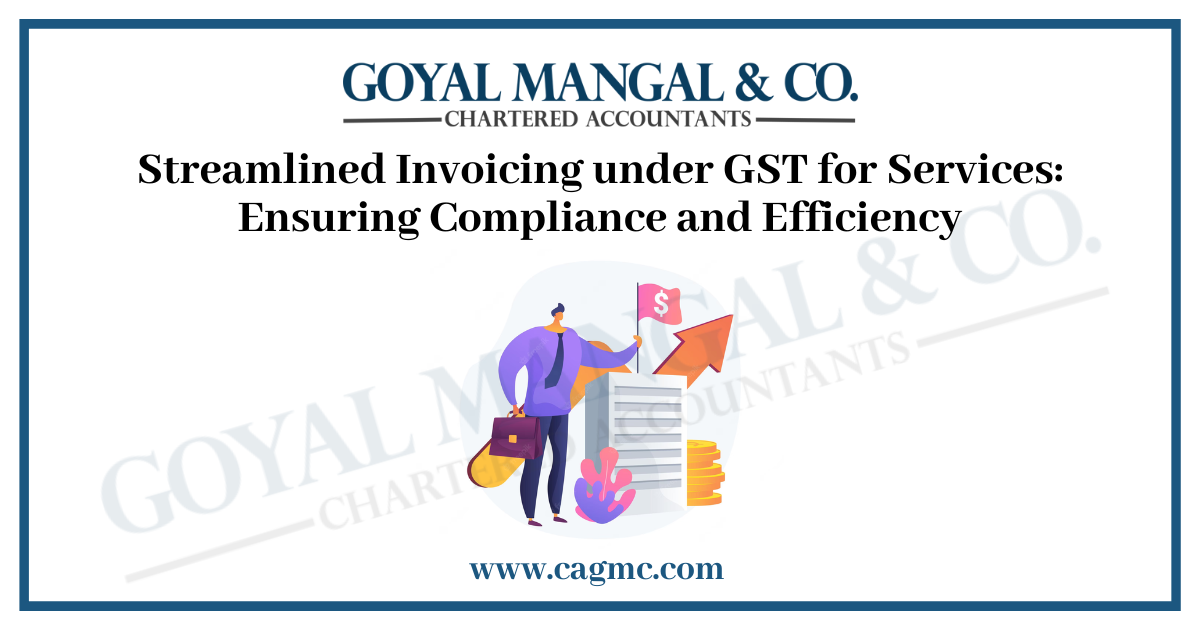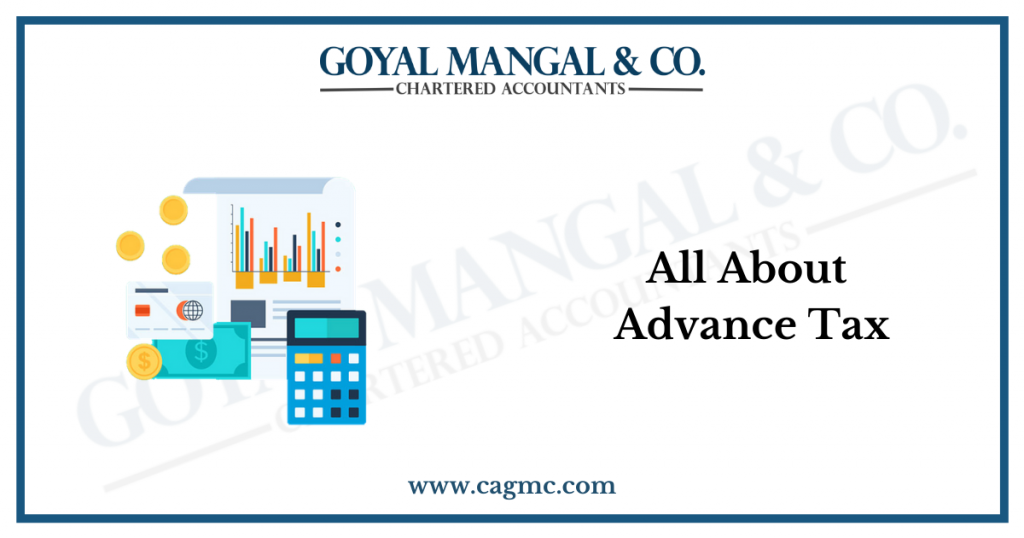
Navigating the complexities of invoicing is a vital aspect for business operating under Goods and Services Tax (GST) system in India. In this article, we will explore the world of invoicing under GST for services. Discover the key guidelines and requirements that businesses need to adhere to when issuing e-invoice under GST for services. From understanding mandatory fields to timelines and compliance, we will offer you with the essential knowledge to ensure smooth invoicing practices and maintain compliance with GST regulations. Join us as we simplify the invoicing process and empower your business to thrive in the realm of GST Invoices for Services.
What are GST Invoices for Services?
GST invoices for services are the official documents issued by service providers to their customers for the supply of services under the GST regime. These invoices serve as a legal record of the transaction and contain essential details related to the services provided and the corresponding taxes.
GST invoices for services include the following information:
- Service Provider Details: The invoice should mention the name, address, and Goods and Services Tax Identification Number (GSTIN) of the service provider. This helps in identifying the supplier and ensuring compliance with GST regulations.
- Invoice Number: Each invoice should have a unique identification number that is assigned sequentially. The invoice number helps in tracking and referencing the transaction.
- Date of Invoice: The date on which the invoice is issued should be mentioned. It is important for determining the time of supply and calculating the applicable tax rate.
- Customer Details: The invoice should include the name, address, and GSTIN of the recipient of services if they are registered under GST. If the customer is not registered, it is not mandatory to include their GSTIN, but their name and address should be mentioned.
- Description of Services: A clear and detailed description of the services provided should be included in the invoice. It helps in identifying the nature of the services rendered.
- Value of Services: The total value of the services provided should be mentioned on the invoice. This includes the service charges, any additional fees or expenses, and any applicable taxes.
- GST Rate and Amount: The invoice should mention the GST rate applicable to the services provided (such as 5%, 12%, 18%, or 28%). The corresponding tax amount should be calculated and stated separately for Central GST (CGST), State GST (SGST) or Union Territory GST (UTGST), and Integrated GST (IGST), as per the applicable tax jurisdiction.
- Place of Supply: The invoice should specify the place of supply of the services, i.e., the state or Union Territory where the services are delivered.
- Signature: The invoice should be signed or digitally signed by the service provider or their authorized representative.
Types of GST invoices under Services
In addition to the regular GST invoice, two other types of invoices can be issued for services under the GST system in India:
- Bill of Supply: A Bill of Supply is issued instead of a regular GST invoice in certain cases. It is used when a service provider falls under the composition scheme or provides exempt services. The Bill of Supply does not include any tax amount or tax rate since the composition scheme businesses pay tax at a fixed rate and exempt services are not taxable.
- Revised Invoice: A revised invoice is issued when there are any changes or corrections required in the original invoice. If there are errors in the original invoice, such as incorrect information or wrong tax calculations, a revised invoice can be issued to rectify those errors. The revised invoice should mention that it is a “revised invoice” and refer to the original invoice number and date.
Who should issue GST invoices for Services?
GST invoices for services should be issued by the service provider or supplier who is registered under the GST system. The service provider is responsible for generating and issuing invoices to their customers for the services rendered.
It is important to note that GST registration is mandatory for businesses whose aggregate turnover exceeds the prescribed threshold limit (which varies for different states in India). Once a service provider is registered under GST, they are required to follow the invoicing rules and regulations specified by the GST law.
The service provider should issue GST invoices to their customers promptly, within 30 days from the date of supply of services. The invoices should contain all the necessary information as prescribed by GST laws, including details of the service provider, recipient, description of services, value of services, GST rate, tax amount, and other relevant particulars.
If the service provider falls under the composition scheme or provides exempt services, they may issue a “Bill of Supply” instead of a regular tax invoice.
How many copies of Invoices for Services should be issued?
Under the GST system in India, when issuing invoices for services, the number of copies to be issued depends on the circumstances and the nature of the transaction. Here are the guidelines for the number of invoice copies to be issued:
- Original Copy: The original copy of the invoice is typically issued to the recipient of the services. It serves as proof of the transaction and contains all the necessary details required for compliance and record-keeping.
- Duplicate Copy: A duplicate copy of the invoice is issued by the supplier for record-keeping purposes. It should be marked as a “duplicate” copy and should have the word “DUPLICATE” prominently displayed on the copy.
Invoicing under GST for Services
Under the GST system, invoicing for services follows certain guidelines. Here’s an overview of the invoicing requirements for services under GST:
- Invoice Format
- Invoice Numbering: Invoices for services should be assigned a unique number for each financial year. It can be an alphanumeric sequence with a maximum of 16 characters.
- Time of Issue: Invoices for services should be issued within 30 days from the date of supply of services.
- Bill of Supply: In certain cases, where the service provider falls under the composition scheme or provides exempt services, a “Bill of Supply” should be issued instead of a regular tax invoice.
- Value of Supply: The invoice should clearly state the total value of services provided. It should include the service charges, any other fees or expenses, and applicable taxes separately.
- GST Rates: The applicable GST rates for services vary based on their classification. The GST rate can be 0%, 5%, 12%, 18%, or 28%, depending on the category of services.
- Reverse Charge Mechanism: If the recipient of the service is liable to pay GST under the reverse charge mechanism, the invoice should mention that the tax is payable on a reverse charge basis.
- Electronic Invoicing: The government has implemented the Electronic Invoicing (e-invoicing) system for certain businesses, based on turnover criteria. These businesses are required to generate and report invoices electronically in the prescribed format.
Time Limit for Issue of Invoices for Services
Under the GST system in India, there is a specific time limit for issuing invoices for services. The time limit varies depending on the type of recipient and the nature of the services provided. Here are the general guidelines:
- Registered Recipient: If the recipient of the services is registered under GST, the invoice should be issued within 30 days from the date of supply of services. The date of supply is generally the date of completion of the service or the date on which the service is deemed to be provided as per the GST law.
- Unregistered Recipient: If the recipient of the services is not registered under GST, the invoice should be issued at the time of supply of services or before receiving any payment, whichever is earlier. In case the payment is received before the supply of services, the invoice should be issued within 30 days from the date of receipt of payment.
Takeaway
Through the above-mentioned information, invoicing under GST for services is a vital aspect of business operations in India’s GST regime. It requires meticulous attention to detail and compliance with the invoicing guidelines set forth by the GST laws. By issuing accurate and timely GST invoices for services, businesses can maintain transparent records, establish credibility with customers, and ensure compliance with tax regulations. By embracing efficient invoicing practices under GST for services, businesses can streamline their operations, maintain compliance, and enhance their reputation as reliable and trustworthy service providers.


